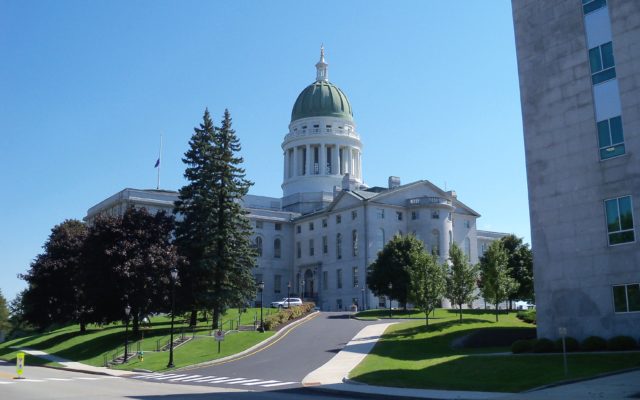
A right to hunting is meant to be covered by Maine’s new ‘right to food’ amendment
By Billy Bob Faulkingham, R-Winter Harbor
Last year Virginia Parker and her husband sued the state of Maine, asserting that the ban on Sunday hunting is unconstitutional under Maine’s Right to Food Amendment, which I helped to pass. Their basic argument is that hunting is a protected activity under the amendment and that the state cannot arbitrarily ban hunting on a day when they, and most other working-class folks, have off from work.
I am, and have always been, a supporter of giving Maine hunters the same right that most hunters around the world have, the right to hunt on Sunday. I even helped to pass Maine’s first in the nation “Right to Food” amendment. Part of the reason that I was so passionate about leading on that issue is because it enumerated Mainers’ right to hunt and fish in the constitution.
In court filings Maine’s attorney general and Department of Inland Fisheries and Wildlife Commissioner Judy Camuso, assert that hunting is not included in the Right to Food amendment. I am writing today to counter that dangerous legal theory once and for all.
The basic assertion is that because hunting and fishing (among other food gathering activities) were included in original drafts of the amendment, then taken out and replaced with “… grow, raise, harvest, produce …” that hunting and fishing are not protected. Again, let me be crystal clear, I believe this is categorically untrue.
The original long list of food procurement activities was considered too long and prescriptive for a constitutional amendment. It was suggested that we find just a few words that describe the activities in a broad manner, which constitutional amendments are usually phrased in, not the prescriptive language that legal statute is usually phrased in.
Harvest, in this case, was intended by myself and others drafting this bill to include hunting and fishing. It was the most clear term to be used that would not rule out other activities, like clamming or foraging. Ironically, part of the reason we chose to use this word is because “harvest” is used very frequently in statute in regards to hunting.
Until now, it has been so clear that harvest was interchangeable with hunting that no one ever even defined it in statute. In fact, the department has repeatedly used the term harvest to mean hunt in public communications and even in a blog where she was talking about how excited she was to “harvest” a deer. Furthermore, “hunt” is an activity that doesn’t always lead to taking, but “harvest” is the actual definition of successful taking of game for consumption.
Another assertion is that because others have made statements like “this constitutional amendment will not change current law,” that we did not intend for this constitutional amendment to have any impact on current law. It is impossible for the originator of a constitutional amendment to preconceive of every situation where a constitutional amendment would be used to protect Maine citizens from overburdensome regulation.
I myself had not thought of this specific lawsuit until it was brought forth. When I read it on the merits, I realized this is exactly the type of lawsuit that I envisioned the amendment being used for. I believe the rights of Maine hunters are being unjustly regulated by a government that is not demonstrating a reasonable management reason for restricting a constitutional right on an arbitrary day of the week. Families go without meat heading into the winter because they work hard all week and cannot hunt on Sunday.
Mainers’ have a right to harvest the food of their choosing so long as they do not abuse natural resources. This right cannot be arbitrarily hindered by an outdated social practice. I support the plaintiffs case and hope that the Superior Court will side with them decisively.
Faulkingham is the Republican leader in the Maine House of Representatives. He was a leader of the “Right to Food” amendment.